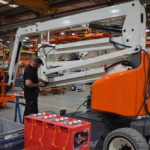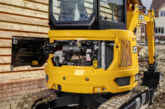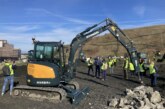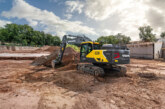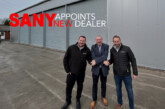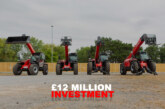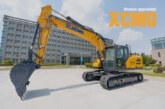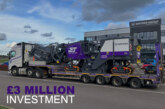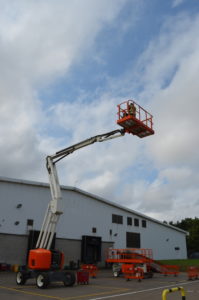 Construction Plant News dives into the deep history of aerial work platform manufacturer Snorkel
Construction Plant News dives into the deep history of aerial work platform manufacturer Snorkel
The north east of England is one of our nation’s great manufacturing heartlands. Its factories have been shaping in steel the machines that built the modern world since the dawn of the industrial age, and, at its substantial Washington plant, that’s a tradition that Snorkel is continuing. Of course, for the uninitiated your first question could well be why the rather incongruous moniker for a MEWP manufacturer? The answer is that the company, founded in 1959 in the US by Art Moore, was originally a maker of fire-fighting equipment and would develop water carrying work platforms specifically designed for the fire service.
Since that time, Snorkel entered the construction industry sector in 1977, and has been building its extensive range of aerial work platforms in the UK since 2007. “The Tyneside facility is one of a six strong global family of machine building hubs, and it is a state of the art, lean manufacturing facility,” explains Matthew Elvin, the multi-national brand’s Las Vegas-based Chief Executive Officer. “Our ambition is to work smarter and not harder, an ethos which is reflected in the success of the units that roll from the line, with the A38E, a unit only built at Washington, experiencing a 42 per cent increase in production in August 2018 compared to the same month in 2017. This popular and versatile electric boom can be used indoors and out. It is compact and manoeuvrable and benefits from a maximum working height of 13.5m with a platform capacity of 215kg.
Snorkel were also pioneers of the self-propelled mast lift as a concept, and over the same period this very popular machine has seen its own prodigious growth in production, with an 128 per cent increase in units leaving the line. “With the highest reach in low level access, Snorkel’s TM12 is also the only unit to be equipped with a 0.5m extension deck, a feature which is supplied as standard,” declares Global Marketing Director, Amelia Pearce. “That, and the fact that it will fit through a standard doorway, and is light enough to be taken in an elevator, makes it a hit with its maintenance industry end users.”
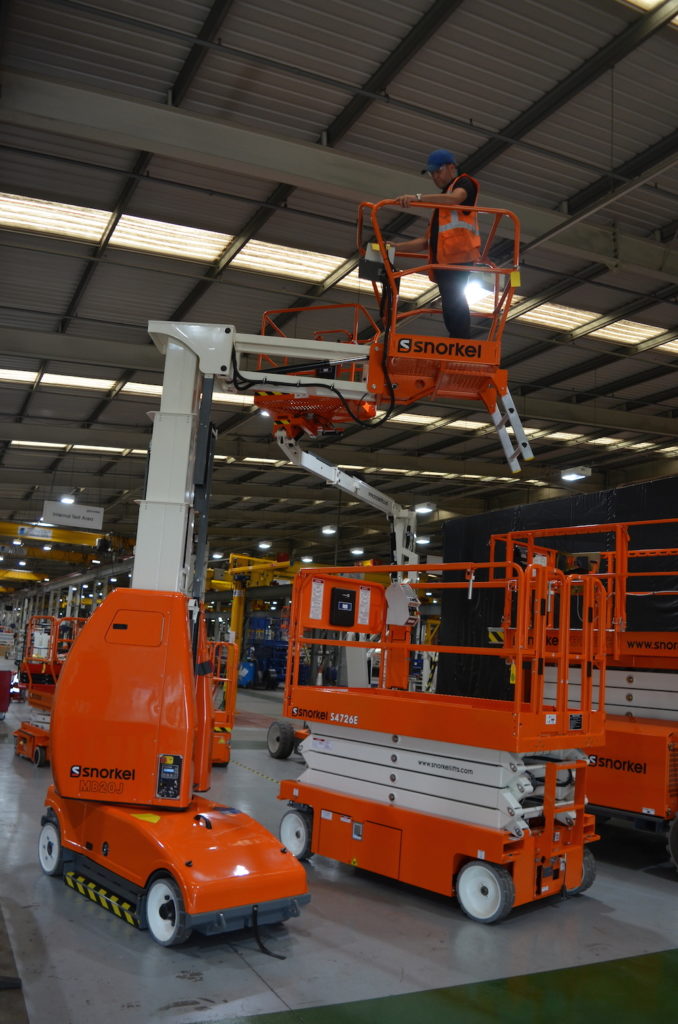 Currently the largest machine taking shape at Snorkel’s UK plant is the A62JRT, a 20.8m articulated boom lift with a 227kg lifting capacity. Operators have found its zero tailswing and tight turning radius makes it particularly well-adapted to compact sites, whilst a hydrostatic drive ensures smooth operation and a very competent performance on rough terrain.
Currently the largest machine taking shape at Snorkel’s UK plant is the A62JRT, a 20.8m articulated boom lift with a 227kg lifting capacity. Operators have found its zero tailswing and tight turning radius makes it particularly well-adapted to compact sites, whilst a hydrostatic drive ensures smooth operation and a very competent performance on rough terrain.
Washington is also home to a substantial testing area, whilst all of its Diesels are required to complete a lap of what is a considerable building in order to work the engine. It takes 7 – 8 hours to fully test one A62JRT, but we were treated to a turn in the SL30SL, the largest of the Speed Level range. This is a unit that has found its place in tunnelling applications, where big increases in productivity have been achieved by eliminating the need to raise and lower outriggers when working along a long expanse, whilst you can also drive whilst the platform is elevated – clearly not something that’s possible with the aforementioned outriggers deployed. Not only that but a platform that can accommodate up to 590kg of men and materials to a height of 11m makes this a very heavy duty piece of equipment, whilst the machine can also climb gradients of up to 50 per cent. As the name suggests the Speed Level’s platform can be levelled by the controller within the basket – 13º side to side and 9º fore to aft.
Forecasting, and just in time delivery of materials and the machines themselves, has been turned into an art form at Washington. Indeed smaller machines can move from assembly to PDI in just 24 hours and in total the factory sees over 120 units leave the gates every week – a figure that’s steadily growing as demand for Snorkel’s engineering expertise increases. Ultimately, the efficiency of the assembly line benefits the customer because they are quickly in possession of a solution that’s perfectly suited to their application, and is fit for their sites – and that includes the striking orange colouring.
“One of the jewels in the Snorkel crown is our paint finish”, continues Matthew, as we tour the factory’s powder coating facility. The bespoke-built paint shop was originally an investment of over £5 million, but, in distinguishing these distinctive orange machines from its competitors, that’s money well spent. “It keeps the machines in a hireable condition for longer and improves the residual value, both of which are crucial to rental firms. In fact, at our own salt spray testing facility the paint lasted an automotive standard 1,500 hours. Once in the field, a two coat process of an electro static powder coat primer, followed by a top coat, means that the unit would have to be subject to a very big hit indeed to expose raw steel.”
At a time when the manufacturing sector is likely to become more important than ever for UK PLC the significant investment this North American firm is making in the north east is a significant vote of confidence, and it is a process which is on-going. A substantially expanded parts facility means they can promise to deliver components to customers with 24 hours, for instance, whilst the A62JRT is shortly to be usurped as the largest unit in Washington by the 21.9m, 272kg capacity 660SJ telescopic boom lift. All of which means that Snorkel and its Tyneside workforce will continue to occupy the high ground in powered access platforms in the years to come.

